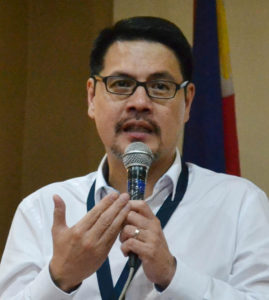 RKC and the WTO TFA
RKC and the WTO TFA
Ten years ago, the Philippine Bureau of Customs (BoC) first announced that the Revised Kyoto Convention (RKC) will be adopted and implemented in the coming months and years. Known formally as the “The International Convention on the Simplification and Harmonization of Customs procedures (Kyoto Convention)”, the original convention entered into force in 1974.
To meet the growing demands of governments and the international trading community, the original convention was subsequently revised and updated in June 1999. The World Customs Organization (WCO) Council adopted the RKC as the model for efficient and modern customs procedures in the 21st century.
RKC was designed by the WCO to standardize and harmonize customs policies and procedures worldwide. It likewise serves to implement customs-related principles developed by the WTO, such as the agreements contained in Article V (Freedom of Transit), Article VIII (Fees & Formalities Connected with Importation and Exportation) and Article X (Publication & Administration of Trade Regulations) of the GATT 1994. In June 2010, the Philippines submitted to the WCO its Instrument of Accession to the RKC.
In preparation for its accession to the WTO TFA, the Philippines submitted in July 2014 its “Category A” notification which indicated provisions of the TFA it intends to implement upon entry into force of the agreement. As a developing country, the Philippines can choose which commitments to prioritize, and the implementation can be on a staggered basis.The Philippine Permanent Mission to the WTO in Geneva deposited the Instrument of Acceptance to the WTO TFA last October 28, 2016.
The WTO TFA entered into force on February 22, 2017 after 110 countries (about 2/3 of 164 member-economies) submitted their instruments of acceptance to the WTO. The WTO TFA is the first multilateral trade agreement to be concluded since the establishment of the WTO in 1995. As a trade facilitation agreement, the agreement contains many provisions relating to the movement of goods across borders. Accordingly, it is “expected to reduce total trade costs by more than 14 percent for low-income countries, more than 15 percent for lower-middle countries, and more than 13 percent for upper middle-income countries by streamlining the flow of trade across borders”.
Salient Provisions of the WTO TFA
The WCO has been instrumental in the preparation of the WTO TFA and it is not surprising that many provisions of the RKC have been included in the agreement.
The WTO TFA is mainly composed of two Sections, with each section composed of articles and specific provisions. Section I pertains to the various articles on trade facilitation as follows:
- Publication and Availability of Information
- Opportunity to Comment, Information Before Entry into Force and Consultations
- Advance Rulings
- Procedures for Appeal or Review
- Other Measure to Enhance Impartiality, Non-Discrimination and Transparency
- Disciplines on Fees and Charges imposed on or in connection with Importation and Exportation, and Penalties
- Release and Clearance of Goods
- Border Agency Cooperation
- Movement of Goods Intended for Import under Customs Control
- Formalities connected with Importation, Exportation and Transit
- Freedom of Transit
- Customs Cooperation
Section II of the agreement pertains to the special and differential treatment for developing and least-developed countries in the implementation of the provisions of the agreement.
Common Provisions
Last May 30, 2016, a new law modernizing customs administration in the country was signed and approved – the Customs Modernization and Tariff Act or CMTA. This new law generally adopts and implements the RKC and many of the provisions of the WTO TFA. It also overhauls the existing Tariff and Customs Code of the Philippines, most of the provisions of which have been in effect for more than fifty years.
While the CMTA was passed into law even before the WTO TFA was ratified by the Philippines, many of the provisions of the WTO TFA were already considered during the congressional deliberations on the CMTA.
Some of the common provisions of the RKC and the WTO TFA which have been included in the CMTA are as follows: publication of information, use of information technology (or the internet), requirement for notice and consultation, provision for advance rulings and appeals, penalty disciplines, risk management, post clearance audit and many others.
The author is an international trade, indirect tax (customs) and supply chain expert. He is the Editorial Board Chairman of Asia Customs and Trade, an online portal on customs and trade developments affecting global trade and customs compliance in Asia. ACT provides trade intelligence through industry updates and features; columns written by customs and trade professionals and experts; and specially commissioned reports. For questions, please email him at agatonuvero@customstrade.asia (www.customstrade.asia).












